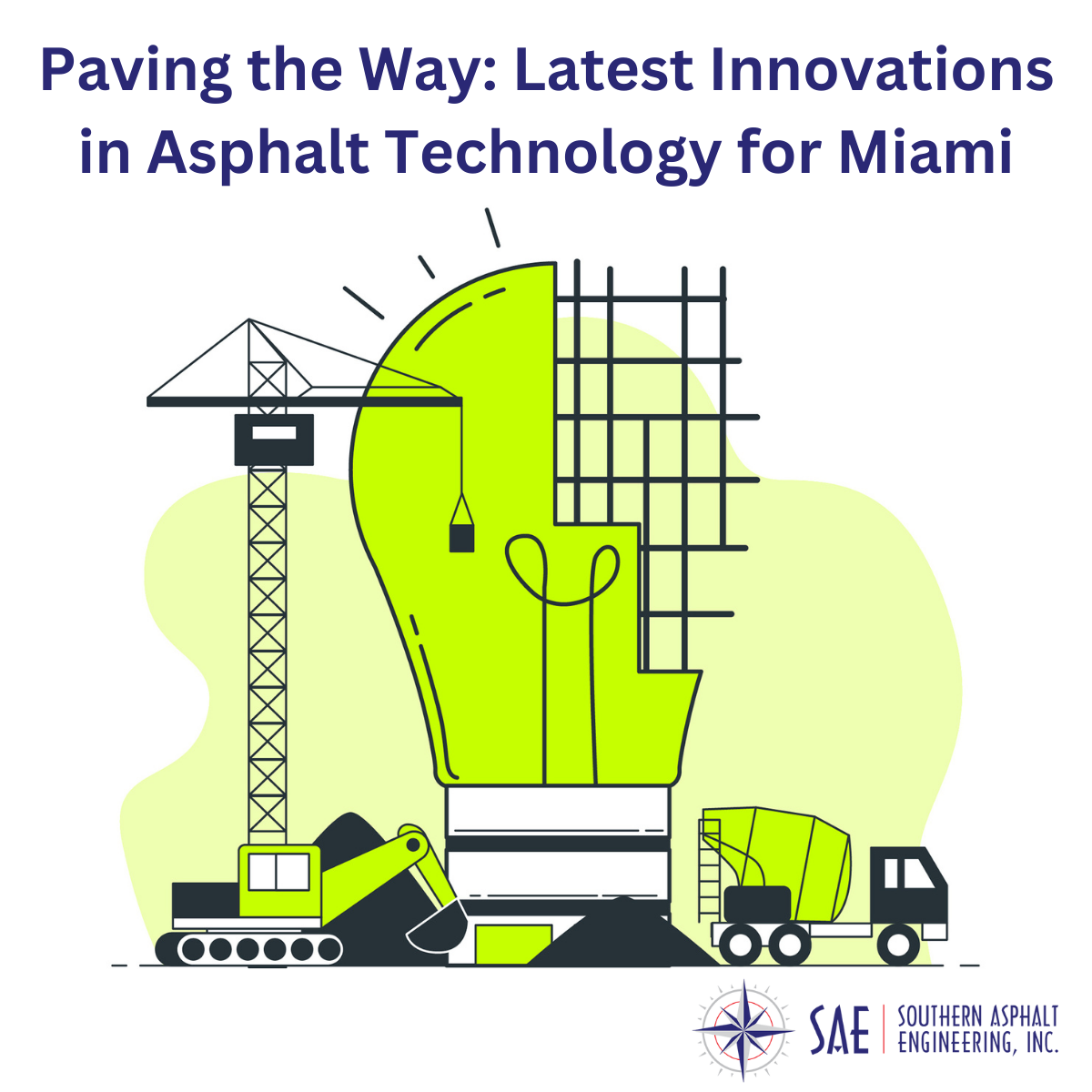Asphalt has long been a critical component of modern infrastructure, particularly in fast-growing cities like Miami. With increased urbanization and the need for sustainable solutions, the asphalt industry has focused on innovations addressing environmental concerns and improving performance. In this blog post, we’ll explore the latest advancements in asphalt technology, such as eco-friendly materials, permeable asphalt, and performance-enhancing additives.
1. Eco-Friendly Materials:
The asphalt industry is embracing environmentally conscious materials to reduce its carbon footprint and minimize waste. Some notable examples include:
- Reclaimed Asphalt Pavement (RAP): RAP is an eco-friendly alternative incorporating old, milled asphalt into new pavement mixes. This reduces waste and lowers the need for virgin materials in the Miami area.
- Bio-based binders: Researchers are exploring using waste materials, such as vegetable oils and lignin from the paper industry, as binders in asphalt production. This can help reduce dependency on petroleum-based products and contribute to a circular economy.
- CO2 reduction in asphalt production: Companies are developing new production processes that significantly reduce CO2 emissions, which can help Miami meet its climate goals and reduce its environmental impact.
2. Permeable Asphalt:
Permeable asphalt is a porous pavement that allows water to pass through it rather than contributing to runoff. This is particularly relevant in Miami, where flooding and stormwater management are pressing concerns.
- Benefits: Permeable asphalt can help reduce localized flooding and minimize the burden on Miami’s stormwater management systems. It also contributes to mitigating the urban heat island effect, which can be particularly intense in densely populated areas.
- Challenges: Permeable asphalt may require more maintenance and is not suitable for all applications. However, careful planning and proper installation can overcome these limitations.
3. Asphalt Additives to Improve Performance:
To enhance the durability and longevity of Miami’s roadways, the industry is introducing various additives into the asphalt mix:
- Polymer-modified asphalt: By adding polymers to the asphalt binder, engineers can create a more flexible and resilient pavement that better withstands Miami’s heat and humidity.
- Fibers, nanomaterials, and other additives: These materials can improve the strength and resistance to deformation, making the pavement more suitable for the heavy traffic typical in South Florida.
- Anti-stripping agents: These additives help reduce moisture damage in asphalt, an essential consideration in Florida’s humid and wet climate.
4. Innovative Techniques in Asphalt Paving:
The asphalt industry is also exploring cutting-edge techniques to improve paving practices in Miami:
- Warm Mix Asphalt (WMA): WMA reduces energy consumption and emissions during production, making it an eco-friendly choice for Miami’s infrastructure projects.
- Cold in-place recycling (CIR) and Full-depth reclamation (FDR): These pavement rehabilitation methods minimize waste and use existing materials, promoting sustainability in roadway maintenance.
- 3D printing in asphalt paving: While still in the early stages, 3D printing can revolutionize asphalt paving by automating processes, increasing precision, and reducing labor costs. More to come on this!
The latest innovations in asphalt technology hold great promise for improving Miami and South Florida’s infrastructure and addressing environmental concerns. By embracing these advancements, cities can continue to grow sustainably while enhancing the quality of life for their residents. City planners, engineers, and stakeholders must stay informed and support ongoing research and development in the industry. As these new technologies and techniques become more widely adopted, South Florida will be better positioned to create long-lasting, environmentally friendly, and efficient roadways that meet the needs of its growing population. By taking proactive steps to incorporate eco-friendly materials, permeable asphalt, and performance-enhancing additives into the city’s infrastructure, Miami can set an example for other cities in Florida to follow and pave the way for a greener, more sustainable future.
